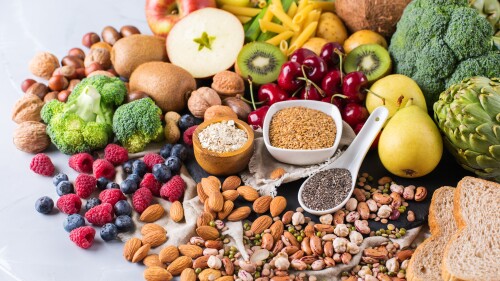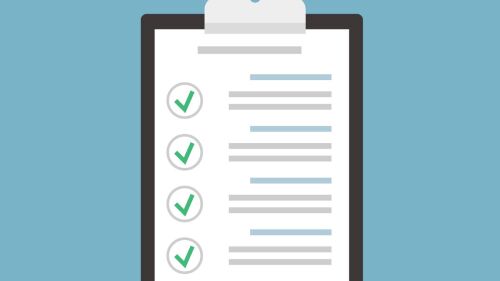First responders are tasked with making high-stakes split-second decisions in their on-the-go, physically demanding roles. Much like training and being fluent in the latest protocols and procedures, eating right is essential to setting first responders up for the mental clarity and physical readiness they need to respond to the demands of the job.
Understanding the vital role that diet plays in enhancing performance, energy levels and overall wellbeing is crucial for those on the front lines of emergency services.
During First Responder Wellness Week 2024, EMS1 will host a special live episode of the Inside EMS podcast, titled “Eat smart, respond strong: Nutrition insights for first responders.” Host Chris Cebollero will welcome first responder nutrition experts Jill Joyce, PhD, RD; Megan Lautz, MS, RD, NSCA CSCS, NSCA TSAC-F; and Mandy Nice, NSCA TSAC-F,*D, NSCA CPT*D, who will share how behavioral science, healthy supplies and agency culture can support first responders’ health goals. Register here to join the conversation.
Together, they will offer practical advice on making nutritional choices that enhance job performance and contribute to overall health and wellness, including:
- 3 nutrition guardrails
- The place for sugar in your diet
- Altering the food environment
- Healthy grab-and-go snack options
- The adding-in mindset
- How to shift culture and avoid peer pressure
Why is nutrition especially important for first responders?
Food is fuel, and quality is key. “Nutrition fuels performance on the job, just like an athlete on the field,” Dr. Joyce shared. “If you want to be high performing, you have to put good fuel into your body at the right time. Bonus – it also fuels a long, high-quality retirement to max out your pension.”
Your diet impacts your energy levels, and “good nutrition boosts physical and mental performance,” Lautz added.
“Prioritizing great nutrition elevates one’s overall quality of life and longevity, and first responders deserve the very best,” Nice said. Eating right helps energize first responders to do what they need to do on-shift and what they want to do off-shift. “That gives them more freedom to make the most out of every day,” she explained.
Watch for more:
3 most common questions first responders ask about nutrition
Our nutrition experts noted there are some common questions they get from first responders about nutrition and healthy eating, and shared their responses.
- How much caffeine can I get away with? It will come as no surprise that one of the most common questions first responders ask nutritionists relates to coffee consumption. Lautz tells her first responder clients to limit caffeine to 400 mg per day with no more than 200 mg per serving (per FDA recommendations for healthy individuals). “Leave a buffer of 5 hours between the last caffeinated beverage and bedtime,” she suggests.
- Should I take a multivitamin? If you’re not including all the food groups in balance in your diet, or there are days when being on shift prevents you from getting enough healthy food, then sure, Dr. Joyce says. A multivitamin will not prevent any chronic diseases, like heart disease or cancer, she notes, and if you are a smoker, it may even increase your risk of cancer. However, she refers to a multivitamin as “nutrition insurance.” “Like health insurance, you pay for it and don’t often use it or see the benefit of it, but it is there when you need it to swoop in and support your diet to get you to adequate vitamin and mineral levels,” she noted. As always with supplements, talk to your doctor before starting one, as it may interact negatively with medications or medical conditions.
- Why does “healthy” food always taste so boring? If you find healthy options unexciting or bland, it may be because you haven’t reset your taste buds yet, Nice explained. “Consistently choosing healthier foods for at least a month will help you regain your ability to taste smaller amounts of sugar and salt, and that will make foods that once tasted boring start to taste more flavorful. Also, don’t be afraid to add healthy herbs and spices to meals and snacks, it can make a world of difference.”
3 Healthy eating quick takes
I asked Lautz, Dr. Joyce and Nice for one takeaway they will share in the upcoming webinar. Here’s their quick tips:
- Be patient. “Small changes can lead to big, long-lasting results,” Lautz noted, “but the results may take more time.”
- Be mindful of your environment. “When we fail to eat healthy or fall off the wagon on a diet, we tend to blame and beat up ourselves as the sole source of that failure, when in actuality, the fact that you were motivated enough to try – and frustrated about not consistently succeeding – indicates it likely wasn’t all or even mostly you,” Dr. Joyce pointed out. “We almost always, clinicians included, fail to see the influences on our health behaviors external to ourselves (i.e., the people and places that influence us). This goes for eating healthfully or working out. I challenge you to also consider the people who influence you (supporters and challengers) and the places that influence you (access to fast food restaurants and the counters at the station). They’re major players in your healthy habits too.”
- Keep it simple. “If it ever feels like maintaining good nutrition is more complicated and time consuming than it’s worth, that’s probably because you bit off more than you could chew,” Nice said. “Instead of trying to find the ‘perfect diet,’ start to build a healthy routine that includes packing smart snacks for your shift and drinking water before each snack or meal. Remember, when you build a nutrition routine that makes the healthy choice the easy choice, it will automate your long-term success.”
Eating right should not be complex or burdensome, but a series of simple, sustainable choices that collectively make a significant impact.
Recommended nutrition resources
- First Responder Wellness Week. Check out EMS1’s resources, including checklists, videos and expert tips on physical fitness, peer support, nutrition, mental health and family support
- Cordico App. On-demand access to relevant, trusted and effective wellness resources, including a Nutrition Toolkit and Weight Loss Challenge
- Lexipol’s Public Safety Wellness Solutions. Confidential, mobile wellness support for high-stress occupations
- Webinar: The Tactical Nutrition Advantage. How first responders can control weight and increase resiliency
- OSU Tactical Fitness and Nutrition. Dedicated to providing information related to improving health, fitness and performance to first responders
- Healthier Meal Options. From Palm Beach Gardens Fire Rescue
- @Rescue.RD. Megan Lautz on TikTok, Instagram
EMS1 is using generative AI to create some content that is edited and fact-checked by our editors.







